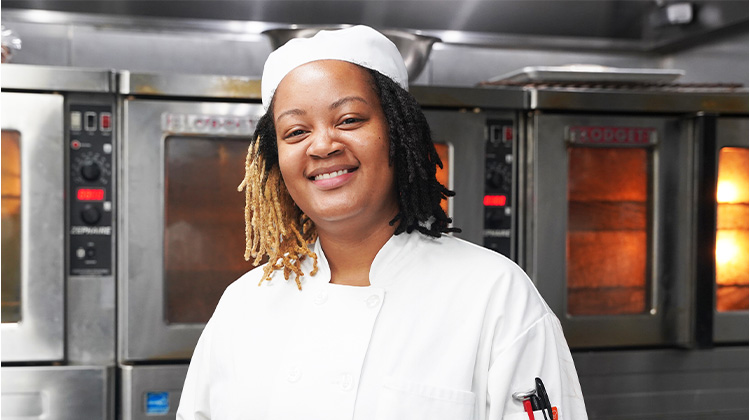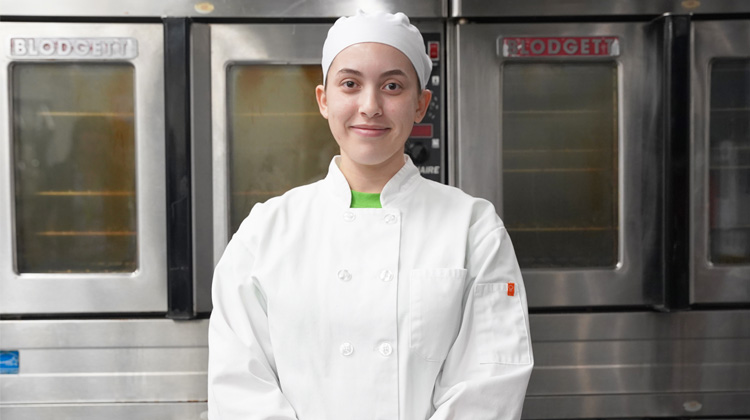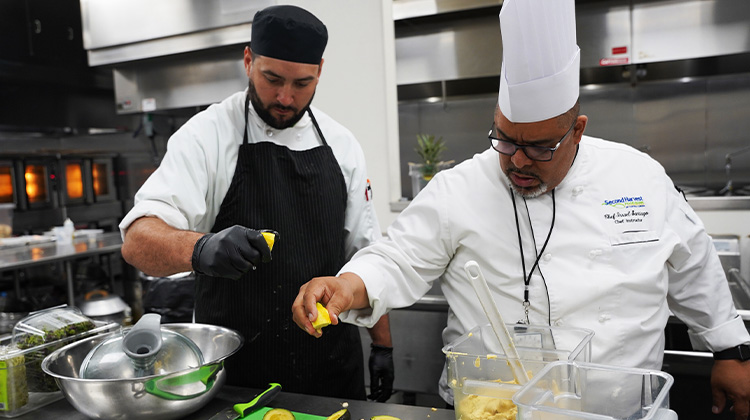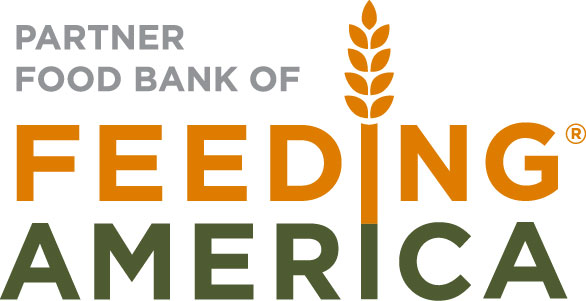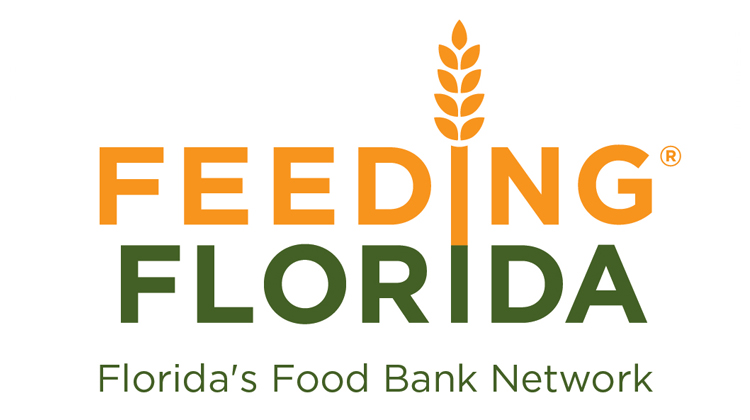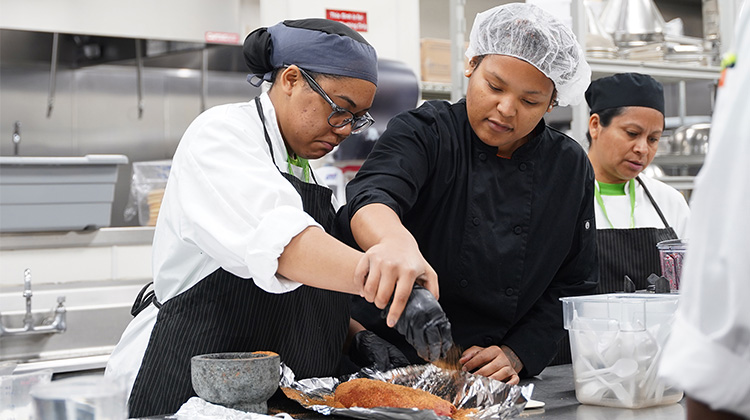
A fresh style of cuisine has entered Second Harvest’s Culinary Training Program. Joining classics like Italian, Mexican, Mediterranean and Middle Eastern, plant-based cuisine is now part of the 16-week curriculum. Introducing students to this cooking style will prepare them better for real-world scenarios.
“It is definitely in the mainstream of the culinary industry,” Keonna Yearwood-Branch, program manager, explains. “For us, it was to update our curriculum to meet what we’re seeing in the workforce.”
Students spend five days learning to prepare and cook appetizers, entrees, sides, and desserts without animal products. Many of the items on the menu are familiar foods – and that’s by design.
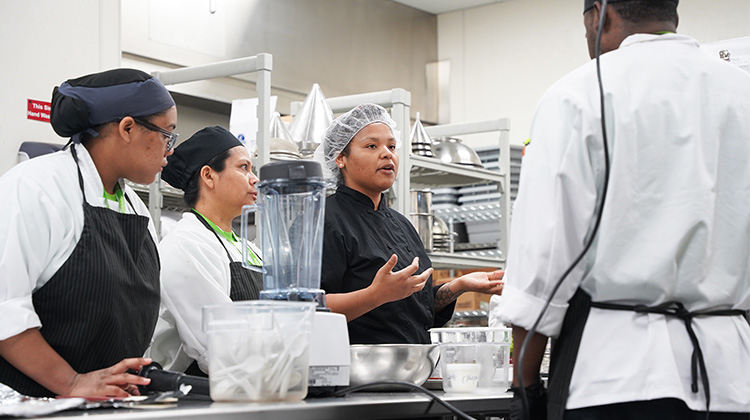
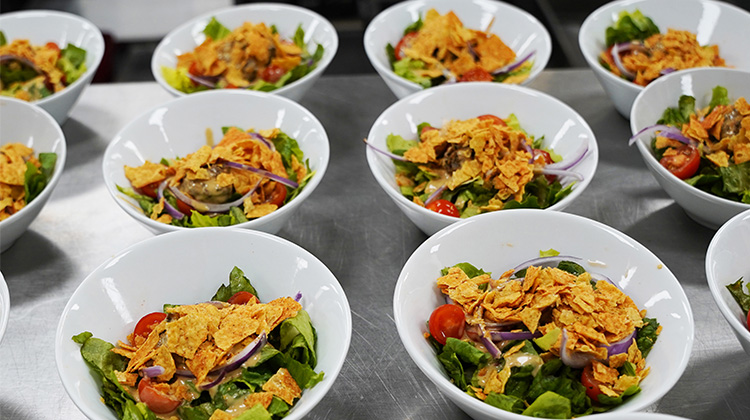
“A lot of the approach to plant-based eating in the industry is things you’re already familiar with – burgers, chicken sandwiches, tacos,” Keonna says. “These are things people are already familiar with, so it’s easier for people to try.”
Keonna, a chef herself, demos one of her favorite plant-based recipes for the students – a Reuben sandwich. During the week, the students also make dishes like chickpea burgers, kale arrabbiata pasta, red bean chili, mushroom antipasto and pineapple “ice cream.” The familiar flavors of these classic dishes make eating – and learning how to cook – plant-based easier.
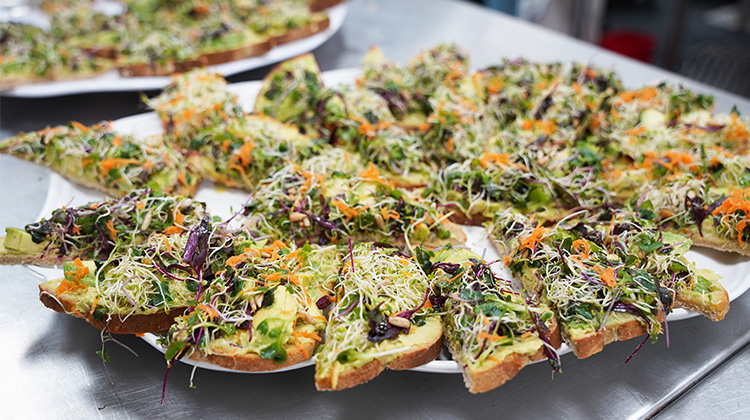
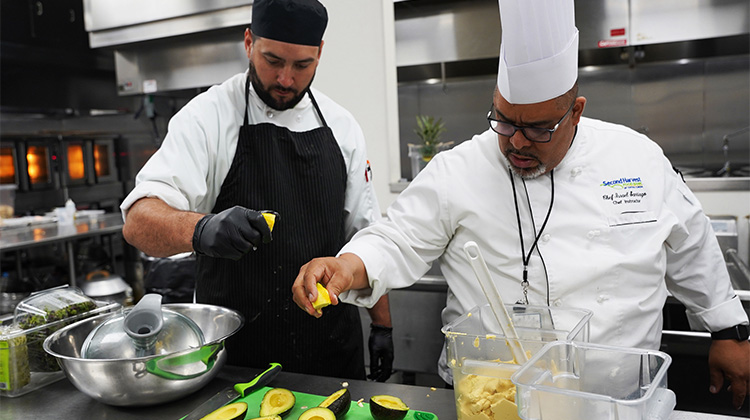
Once the students begin their culinary careers, they will encounter customers who are eating a plant-based diet. It could be a preference or a medical necessity, like an allergy or an illness.
“Understanding how to make those accommodations is always good to have in your back pocket because you don’t want to exclude someone at a table,” Keonna says.
For some students, eating or preparing plant-based cuisine is unfamiliar. Spending a week exploring different ingredients, practicing recipes and tasting the food is eye-opening.
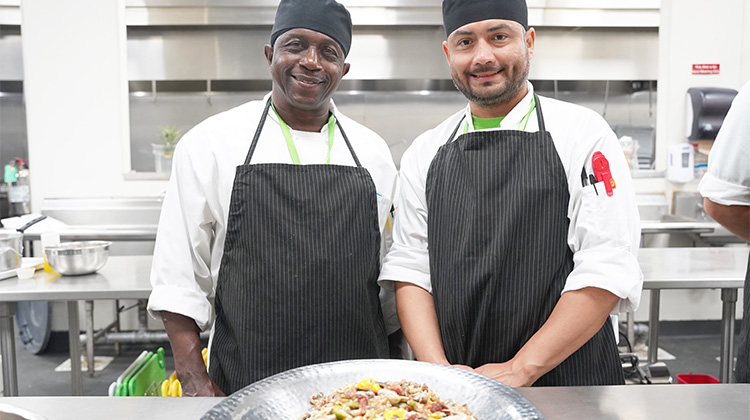
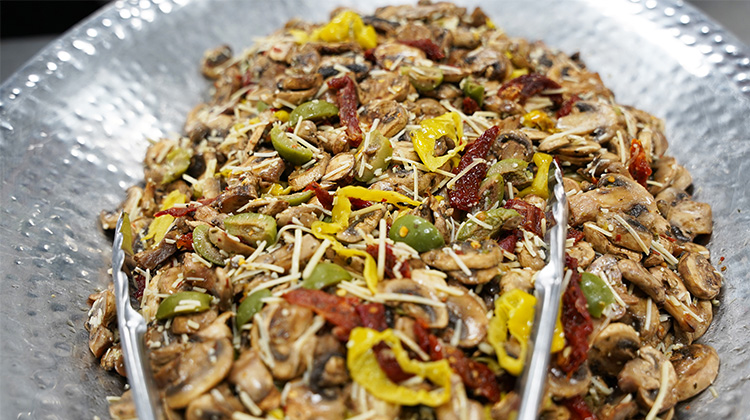
“Before this week, I’d only had a black bean burger,” one student says.
The plant-based cuisine builds on skills the students develop throughout the program, like knife skills and seasoning. While the fundamental techniques don’t change much from cuisine to cuisine, paying attention to the nuances of flavor profiles and key ingredients is essential.
“You’re gonna have to flavor it, but the technique is the same,” she says. “You can still sauté, you can still grill, you can still do all these things; it’s just how you prepare them.”

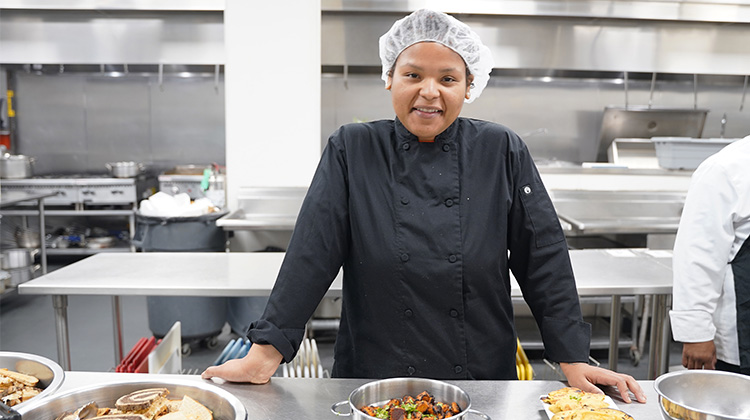
Plant-based cuisine is another tool each student will have in their tool belt when they graduate from the program. They leave the program with experience cooking different cuisines, fundamental kitchen techniques, and life skills, such as financial literacy and resume building.


